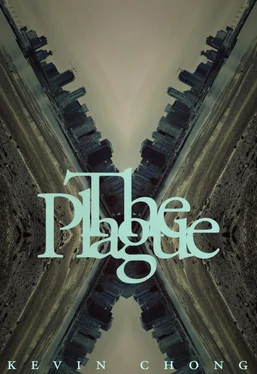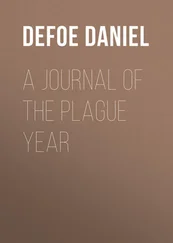For weeks, people on social media had posted about hearing gunshots at night, but the city denied that any violence had occurred, and no one had mentioned anything about drones. But at the hotel’s restaurant a man had been pointed out to Siddhu. He was a permanent resident who used to pilot a drone above crowds of tourists on the beach from a secluded grassy area. The drone, it was said, would drop a water balloon filled with this man’s urine, but he had never been caught. Since the quarantine, there were no tourists and few people on the beach. At the restaurant, Siddhu saw the man most mornings, reading over the newspaper contentedly with his toast and coffee.
The army captain came down from the guard tower with a rifle. He knelt, lined up the drone in his scope, and waited a moment in the hope that the drone might turn back before he pulled the trigger. The crack startled Siddhu.
_________
Siddhu grew up in a house with an above-ground swimming pool. His parents had two additional properties that they either rented at a discount to extended family or left sitting empty. His mother drove only German cars. His parents spoke of deprivation in their childhoods: too many family members, too little space, bill collectors that had to be evaded. As a young man, he believed that he was fortunate, anointed by fate to live on the crest of his family’s rising fortunes.
In his adult life, Siddhu revised that estimate. He saw wealthy foreigners arrive, setting up their children with sports cars, mansions, and clothing budgets. He had wanted to move into the city (and away from his family), but kept waiting for real estate prices to fall to realistic levels. In his self-pity, he considered himself one of the forsaken. He needed only to do his job to realize how wrong he was. In the city he saw desperation and those who lived in chemically blotted consciousness.
The city’s visible history was characterized by a series of dramatic demographic reversals. Asian people moved into areas previously inhabited by white people. White people moved into places previously inhabited by Asians. Rich people moved into places where poor people lived. Neighbourhoods once avoided had become hotspots for professionals and the creative class. Other homes, once brought to life by families, sat empty as investment properties.
It should not have sounded so unlikely to Siddhu when he first heard reports about needles found in the city’s most prestigious residential neighbourhood, Shaughnessy. He was too distracted to take notice. These tips came the week that he changed jobs. He could not pursue the story for his old paper, and he half-thought the tips would lead to a hoax or a piece of transgressive performance art. But in his first week at GSSP, he heard Horne-Bough mention squatters, dozens of them, in vacant homes and future teardowns.
He spent the Tuesday afternoon walking through Shaughnessy. He scoured Devonshire Park, where needles were allegedly discovered, but found only uncollected dog waste. He knocked on doors, but no one answered.
It was by chance that he saw a man pushing a shopping cart through the gates of a Tudor-style mansion. Its lawn was overgrown and its towering evergreens fenced in orange plastic mesh—a telltale sign of a teardown. Siddhu followed the man up the driveway to an open garage door, where the shopping cart was parked.
He entered the house and walked into the kitchen. There were bottles and lighters and needles on a marble counter-top. Beyond was a carpeted family room in which lawn furniture and the back seat of a car had been set up. Half a dozen men and women in hoodies and baseball caps sat around staring at the unlit fireplace. He did not know these people, but he recognized them. This was the part of the population that many citizens had wished away. They’d gotten their wish; these people were no longer seen—and yet, they were never closer.
Siddhu introduced himself. With glazed expressions, a few called out to him as if he was both welcome and expected. One woman who had been squatting by the fireplace approached him. She had black hair streaked with grey strands cut in a shag and papery skin the colour of burnt sienna. She refused to give Siddhu her name but said that she had lived in the Annex area until water damage from putting out a fire in the storefront next door had prompted her eviction. She’d found this squat at the end of the summer. “There’s nothing special about this situation,” she told him bluntly. “There are other houses like this one. We try not to come in and out during the day. He told us to stay out of the way and that we’d be fine.”
“Who?” Siddhu asked.
She was evasive at first. Siddhu offered her a cigarette from a pack he’d bought in case he needed to ingratiate himself today. She took it and began to tell him about the city inspectors who snooped around the house as her housemates hid in the closets. They were careful to keep the blinds closed.
“One day, he showed up with pizza and bottled water. He wanted to know how we were doing. He said that homes were meant to be lived in.”
“Who?”
“He had a nice face, but he wasn’t wearing a suit like he was on all those signs. He drank a beer with one of the boys. Then he said he had to go.”
“Was this Romeo Parsons who visited?” Siddhu asked. “The mayor?”
She nodded. “I guess he’s still the mayor for now.”
Siddhu thanked her and offered her another cigarette.
“You don’t remember me, do you?”
Siddhu shook his head.
She said that Siddhu had interviewed her a year before in one of his award-winning stories about the Annex—back when people were still fighting it. “You told me my words would make a difference, and I said you were full of shit,” she told him. “It doesn’t matter anymore, I guess.” She tucked the cigarette behind her ear to smoke later.
_________
Siddhu called the number that Horne-Bough had given him. He expected someone from Romeo Parsons’ PR company to answer, but it was Parsons himself on a speakerphone in what sounded like a large, empty room. The audible relief in his voice suggested that he’d been waiting for Siddhu’s call. He wanted to speak that afternoon, just the two of them.
“I’m done hiding. I can meet you anywhere,” Parsons told him. “I’m just glad you’ve finally agreed to do it. Your boss said you were too busy.” Siddhu pocketed this information for later use. “I know from your byline that you have integrity and decency.”
Normally, he would have suggested Parsons’ home as a place to meet. An interviewer gets a better sense of the subject from their surroundings, and subjects are at their best where they’re most comfortable. Besides, the mayor owned a Coal Harbour penthouse with a wraparound view of the city and a Damien Hirst sculpture. But Siddhu worried that the mayor would intimidate him. He was also unsure of Parsons’ present situation with his wife. Was he currently banished to some bachelor bungalow? In his own forcibly decoupled state, Siddhu might be too overly sympathetic. He wanted to see the mayor in public, making eye contact with and waving at hip level (the handshake equivalent that had emerged since the quarantine) to locals who had been, by equal measures, magnetized and repelled by him. Siddhu suggested the lounge of his hotel, in an hour. Parsons agreed without hesitation.
Siddhu changed into the best of his four dress shirts and immediately staked out a table. He reviewed the story that had come out so far, most of it advanced by his own colleague at GSSP. Parsons had had a relationship with a woman in university in the late 1980s. She learned she was pregnant. She decided against telling Parsons and returned to her hometown in Western Ontario, where she lived until she died of leukemia. Their daughter, Cassidy, only three years old at the time of her mother’s death, was raised by grandparents.
Читать дальше












